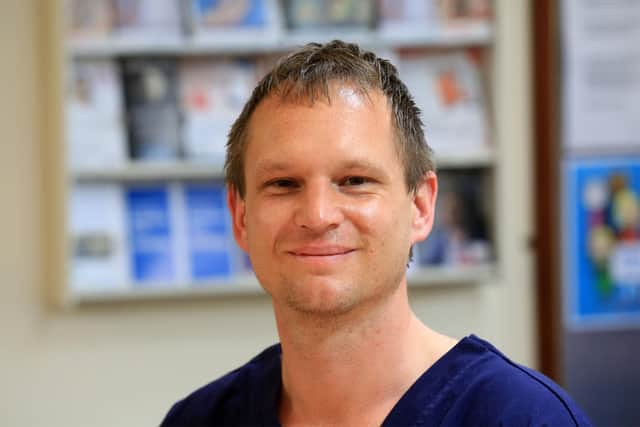On the Frontline: Part 5 (and final) of 'Getting the most out of your appointment' series. Decision making


Have you ever been confused by a doctor asking for your opinion about what should be done and thinking ‘I don’t know, you’re the doctor!’
The doctor is the expert, so they know best, right?
The thing is, there is usually a variety of possible plans.


The doctor’s expertise is knowing how different plans may play out.
However you are the expert in what matters to YOU.
Advertisement
Hide AdAdvertisement
Hide AdSo what we need is something called ‘shared decision making’.
Shared decision making is not a doctor giving you a list of options and asking you to choose.
Instead the doctor describes the ‘pros and cons’ or the ‘risks and benefits’ to the various options. Based on what matters to you, together we can form a plan that is right for you.
Imagine Tony, a 56-year-old with knee pain caused by severe arthritis.
Advertisement
Hide AdAdvertisement
Hide AdPossible good options include self help; physiotherapy; tablet or gel pain killers; weight loss support; changing jobs; surgery.
A doctor can’t decide without knowing what matters to Tony.
Tony can’t decide without understanding more about each option.
We decide together.
Also lets imagine Betty, 92-years-old, becomes unwell, and antibiotics are not helping.
In the past we may have simply told her “you need to be in hospital”. The problem with this is that there is no single ‘right’ decision.
Advertisement
Hide AdAdvertisement
Hide AdIt also depends on what matters most to Betty. Instead, the doctor discusses the risks and benefits to being in hospital, and the risks and benefits of staying at home.
If Betty is able to make decisions for herself, she can decide if it is more of a priority for her to be at home or to have the more specialist treatments in hospital.
Doctors have moved from doing things TO or FOR you, to doing it WITH you.
There are four questions that may be helpful when offered a test, procedure or treatment.
What are the benefits? What are the risks? What are the alternatives? What happens if I do nothing?